UM Education Days 2025: join in, learn, and get inspired!
The UM Education Days are all about sharing ideas, trying out new approaches, and improving education for everyone. It’s a chance for staff and students from all faculties to come together, explore innovative ways of learning, and discuss the latest trends in education.
This year, we’re especially pleased that many sessions have been co-designed and will be co-led with students. This creates more space for student perspectives and hands-on discussions.
There’s a lot to choose from. If you're curious about AI in education, check out sessions on AI tutors and how they fit into PBL. If you’re rethinking assessment, there’s a workshop on making exams more engaging. You can also join a student-led session on Global Citizenship to explore what it means for education at Maastricht University.
For a different perspective, discover how movement can enhance learning or how to handle awkward tutorial moments. If you’re up for something active, try an outdoor coaching session. Or, if you prefer something creative, join our hands-on atelier.
Whether you're looking for fresh ideas, practical activities, or a space to connect with others who care about education, the UM Education Days have something for you. Come along, join the conversation, and leave with plenty of inspiration!
For any inquiries, please feel free to contact the UM Education Days team at EDLAB, where Oscar, Lena, Mathilda, Marie-Lou and Sueli will be happy to assist you.
The Education Days are a great platform to meet, to exchange, to learn with each other and from each other. They're for, by, and with the community.
Ellen Bastiaens, EDLAB directorProgramme – day 1
Opening - 9:30-10:15
In this opening session, together with our Rector Magnificus, Pamela Habibović and EDLAB Director, Ellen Bastiaens, we’ll be welcoming you to the UM Education Days 2025. Expect a session full of lively engagement and meaningful connections that set the stage for the next two days.
Some playful reflections await…
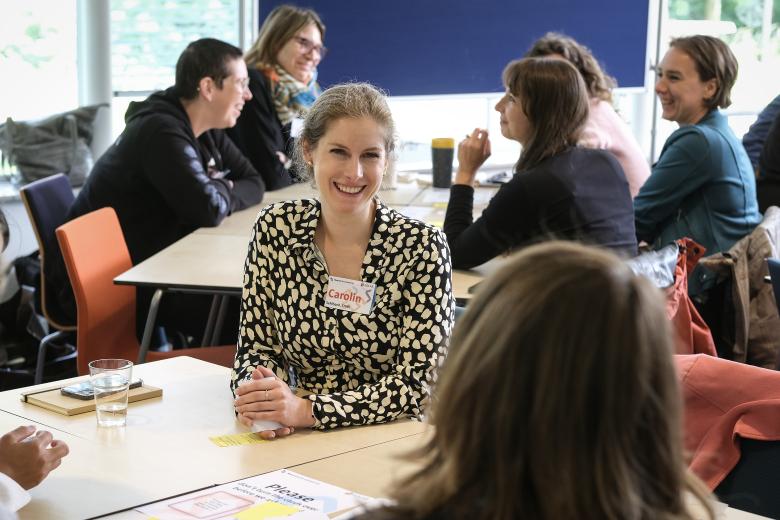
Creative space – come visit the Atelier – 10:15-15:00
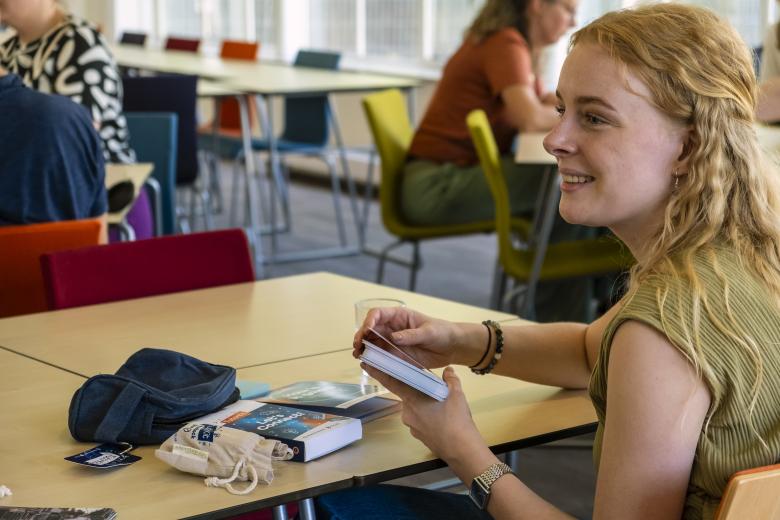
Sessions round 1 - 10:30-12:00
- New education innovations at UM faculties – Presentations of recent EDLAB grant-winning projects
Problem-based learning can be a great testing ground for new educational ideas and stimulate teaching staff to develop innovative and experimental educational design, delivery & assessment. Over the last two years, EDLAB has awarded several grants focusing on education innovations in the PBL classroom.
During this session, recent grant winners will showcase their project ideas, methods and results and respond to any questions and ideas you may have.
The projects cover a wide spectrum of topics from Global Citizenship Education and self-regulation to PBL-training, evaluation practices and authentic reflection. Have a look at these and other EDLAB grant-winning projects here: current and previous.
Students in charge of tutorial designs, by Jade Irvine-Smith and Mirko Reithler
In this workshop, we will showcase a bachelor’s course that takes a hands-off teaching approach to promote shared responsibility of staff and students for the pedagogical format of the tutorial meetings.
We will explain the design and rationale of the course and share experiences, both from a student and a tutor perspective.
We will then open the floor to explore the transferability of the approach to other courses and to reflect on its potential and limitations regarding PBL principles.
How to make your assessment not boring? Using the CCCS principles to enhance assessment with examples from Calculus, by Martijn Boussé, Noortje Busch and Luca Crozzoli
Do you want to make your assessment more engaging? Improve student engagement and motivation in challenging courses? See examples from our university?
Join this session to discover how the constructive, collaborative, contextual, and self-directed (CCCS) learning principles of PBL have the answers to those questions! In this session, you will participate in an assessment activity of a Calculus course. But don’t worry, no advanced maths required!
This hands-on workshop will allow you to apply the CCCS principles to your own teaching.
AI tutors in higher education, by Jan Scholte
How can Generative AI transform teaching and learning? Join us for a hands-on session on using AI as a teaching tool across disciplines.
Building on insights from the DACS Education Day, this session is for the broader UM teaching and learning community. Whether you teach humanities, sciences, or social sciences, you’ll get practical strategies to integrate AI into your courses.
We’ll explore how AI can:- Boost student engagement through interactive learning and Socratic dialogue
- Generate exercises, assessments, and feedback, freeing time for deeper teaching
- Support diverse learning styles with adaptive, personalised content
- Shift assignments towards critical thinking rather than memorisation
We’ll also discuss the challenges – ethical concerns, potential biases, and over-reliance on AI – so you can make informed choices.
Expect real-world examples, ready-to-use techniques, and fresh ideas to enrich your teaching. Join us to rethink and reshape learning with AI!
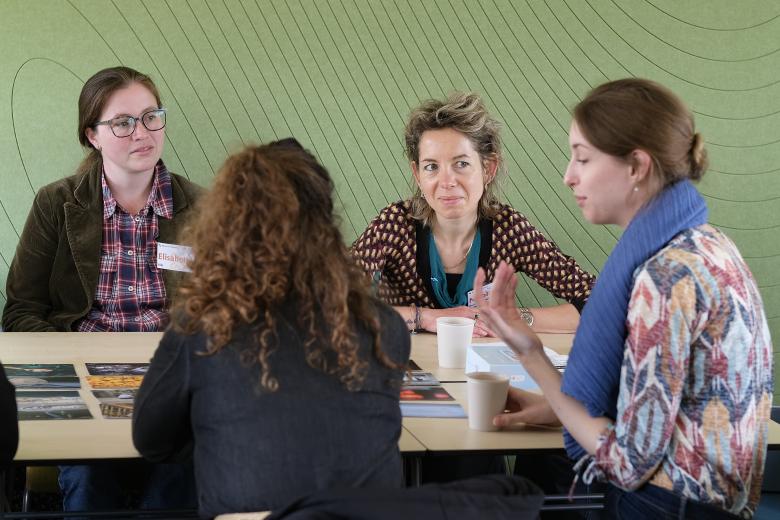
Lunch – 12:00-13:00
Exchange your insights from the first session and get to know your colleagues while enjoying a delicious warm lunch!
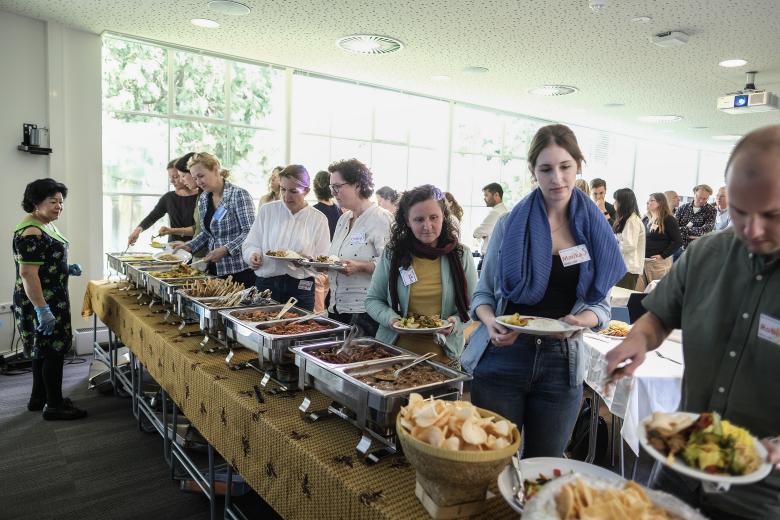
Group photo in the park – 13:00-13:15
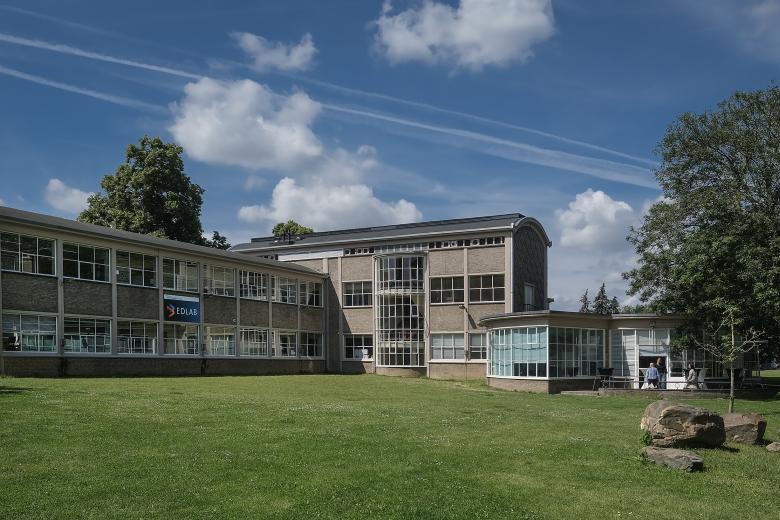
Sessions round 2 - 13:15-14:45
Beyond the buzzword: what does Global Citizenship mean to students?, by Joris Boonen, Elias Weber am Bach and Jessica Schwartz
Global Citizenship is a key principle in education at Maastricht University, but how do students themselves define it? While the United Nations describes it as "the umbrella term for social, political, environmental, and economic actions of globally minded individuals and communities on a worldwide scale," we wanted to hear directly from students.
To bridge the gap between students and staff, we launched a comparative survey project, funded by a 2023 Learning and Innovation grant. We gathered insights from 120 students across UM’s six faculties to explore how they understand and relate to Global Citizenship—what knowledge, skills, and values they associate with it.
Join us as we share our initial findings and discuss how to meaningfully integrate students’ perspectives into Global Citizenship Education at UM. Together, we can rethink what it means to engage students in this global conversation.
- Self-assessment as a supportive tool in a time of challenge, by Lars Eijssen and Joshua Müller
Assessment is key to maintaining quality in our educational programmes. It ensures students meet learning objectives and provides valuable feedback to support their development.
However, assessing effectively is challenging. High workloads make timely grading difficult, and generative AI tools, like ChatGPT, complicate traditional assessment formats such as writing and coding tasks.
This session explores how self-assessment can help address these challenges while maintaining diverse assessment formats. We’ll connect its benefits to the core purposes of assessment – measuring learning and providing feedback – and discuss potential limitations in different contexts.
There will also be space to reflect on how self-assessment could fit into your own teaching and to exchange ideas on its strengths and challenges.
- Showcasing innovative teaching practices from the UTQ programme, by Eveline Persoon & Dominique Meyers
In this session, we will share various examples of innovative teaching practices that teachers and educators explored while completing their University Teaching Qualification (UTQ). Each presenter will give a 10–15-minute interactive pitch, offering inspiration for your own teaching or even future UTQ journey.
After each pitch, we will reflect on their ideas, challenges and insights, and highlight the value of education innovation at UM.
- AI & the PBL classroom – Presentations of EDLAB grant-winning projects with a focus on AI & learning
The impact of GenAI on education has triggered many UM teaching staff to design, integrate and try out AI features in the PBL-classroom. Over the last two years, EDLAB has awarded several innovation and research grants to projects devoted to the topic of AI.
During this session, grant winners will showcase their project ideas, methods, and results and respond to any questions or additional ideas you may have. Project topics include AI & assessment, AI as a coach, AI & academic writing and ethical use of AI.
Have a look at these and other EDLAB grant-winning projects here: current and previous.
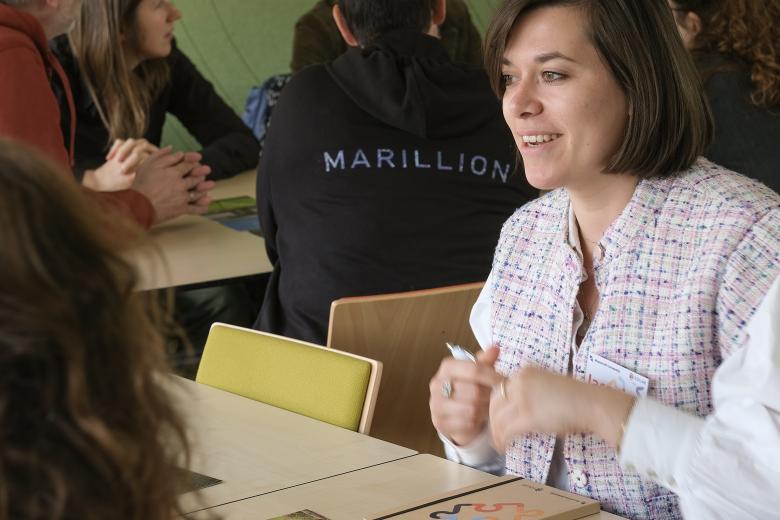
Tea & coffee break
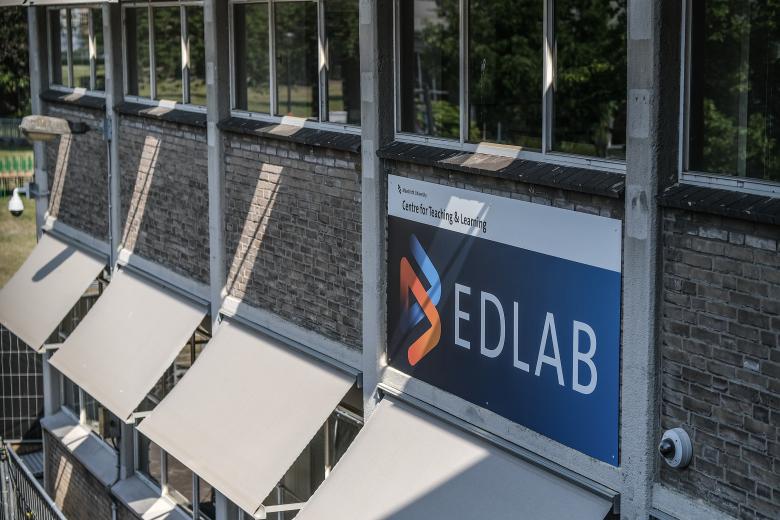
Sessions round 3 - 15:00-16:30
Co-creating education, by EDLAB Student Advisory Board members Rebecca du-Pont, Ksenija Tarasova, Helena Hohn and Alexandra Gropius
Co-creation gives students a real say in shaping their education. This session is all about making that happen.
Through interactive activities, we’ll explore practical ways to bring student voices into course and curriculum design. You’ll see how co-creation boosts engagement, strengthens connections between theory and practice, and leads to ideas that can be put into action straight away.
Whether you’re an educator looking to integrate student perspectives or a student eager to take a more active role, this session will give you concrete tools and fresh inspiration. You’ll walk away with ready-to-use strategies to make learning a more dynamic and collaborative process. Join us in co-creating education!
- Enhancing learner agency, by Iris Burks
Our student body reflects a vibrant diversity of interests, abilities, and needs. By embracing this diversity, we can shape an educational experience where every student thrives through learner agency.
Together, we will explore how we can cultivate purposeful, authentic, as well as action-oriented learner agency. Grounded in three powerful pillars – Engagement, Representation, and Action and Expression – we’ll dive deep into Problem-Based Learning and our current educational practice through the lens of Universal Design for Learning (UDL). Participants will leave this session with renewed inspiration to make small yet meaningful changes that can enhance learner agency.
By the end of this workshop, participants will:- Understand how to enhance learner agency
- Identify existing ways their teaching already supports learner agency
- Gain inspiration for implementing incremental change
- New tools & technologies for the PBL classroom – Presentations of EDLAB grant-winning projects with a focus on tools & technology
Are you curious how new educational technology applications are used in the PBL classroom? Over the last two years, EDLAB has awarded several innovation and research grants to projects devoted to exploring new ed-tech tools for learning within the PBL environment.
During this session, grant winners will showcase their project ideas, methods and results and respond to any questions and additional ideas you may have. Project topics include immersive learning through VR, robots in education, interactive websites, Pebble Pad as a tool for self-regulation and the development of home-made tools.
Have a look at these and other EDLAB grant-winning projects here: current and previous.
- Instructional Design for Leadership game, by Maryam Asoodar, Peter Renden & Sonja Zaar
Are you a course designer or tutor looking to boost your students' leadership skills? Step into our interactive game and take on the challenge:- Your mission: unlock the secrets to fostering leadership skills in your classroom.
- Gather insights from students on what truly drives their leadership development.
- Discover classroom practices that shape leadership knowledge, skills, and identity.
- Compete in our Course Redesign Challenge and put your new insights to the test.
Walk away with winning strategies, innovative teaching approaches, and a network of like-minded educators. Are you ready to play? Join us!
- Teacher in the mind, teacher in the body – overcoming classroom challenges through embodiment by Kristína Klačanská
Embodiment is a mindful practice that connects the mind and body. It is a physical approach to self-reflection, self-awareness, and self-regulation. As teachers, we often rely on our minds, but do we also listen to what our bodies tell us?
In this workshop, we will take a completely different perspective on teaching: the embodied perspective, shifting from thinking to feeling and experiencing. We will learn movement-based techniques that help us navigate the challenges we, as teachers and tutors, may face. We will explore how it is not only the mind, but also the body, that takes up the role of a teacher. The session will include dance and movement exercises that encourage creativity, playfulness, and self-expression through movement.
No prior experience with embodiment or dance is needed. You will be guided through the exercises in a safe and supportive way. Wear comfortable clothing and come with an open mind and curiosity.
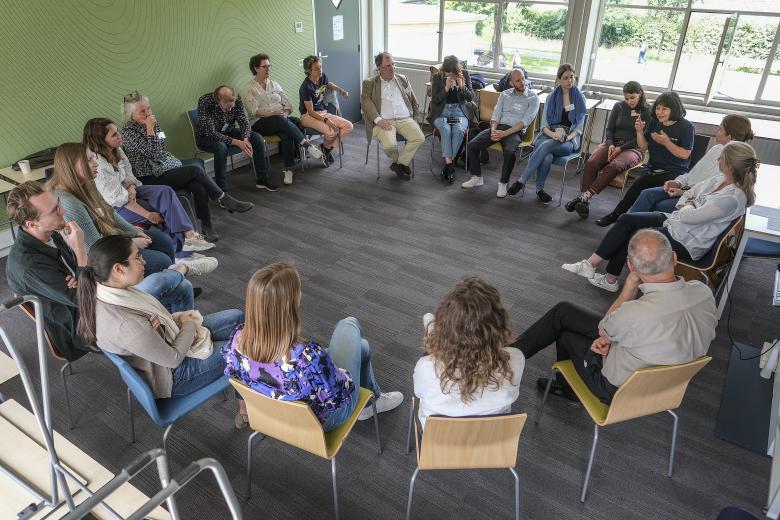
Drinks
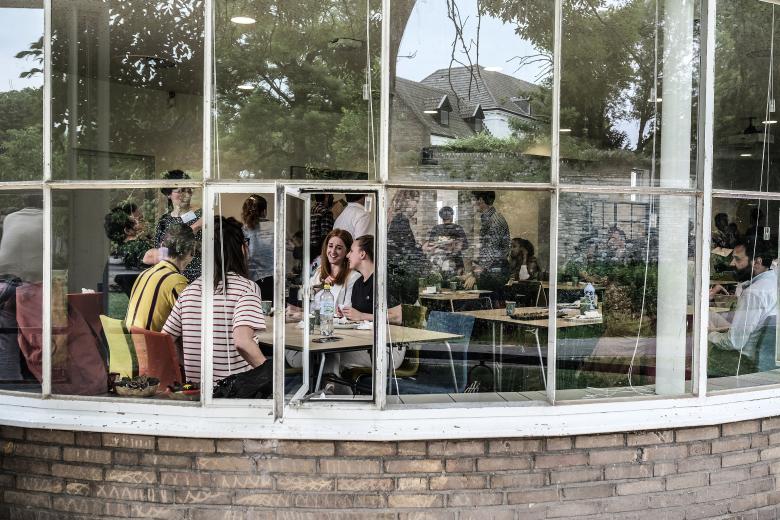
Programme - day 2
Creative space: come visit the Atelier – 9:45-13:00
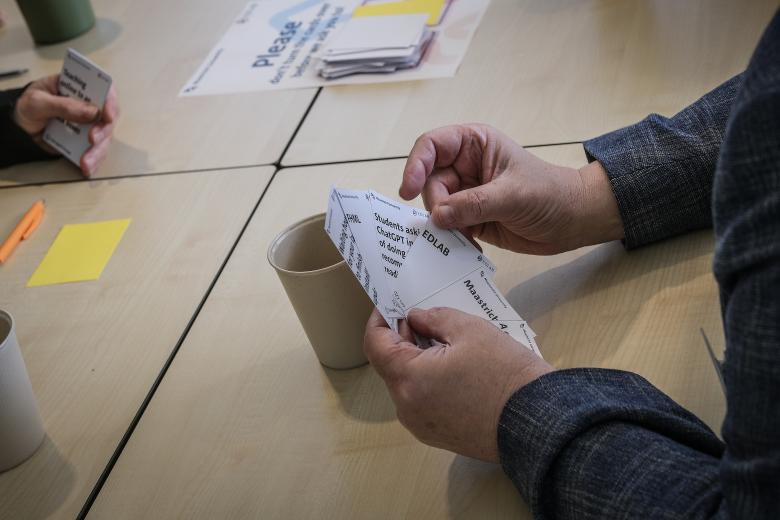
Sessions round 4 - 10:00-11:30
- Well, that’s awkward! Dealing with uncomfortable behaviour in class, by Rena Gatzounis
From questionable jokes to microaggressions like eyerolling when somebody is talking, to flat-out discriminatory statements – we may all witness such behaviour when we’re teaching. But should we respond? And what can we do in that split second to intervene before the conversation moves on?
In this session, we will discuss the 4Ds – Direct or Delayed intervention, Distraction, and Delegation – and how they can help you to deal with uncomfortable behaviour in our tutorials. Participants will discuss different scenarios and empower each other by exchanging experiences.
Disengage, for full engagement: beyond notifications and breaks, by Lia Křižová and Niklas Wenzel
In this workshop, we will explore findings from two recent studies: one on how Canvas messaging affects UM students' well-being and another on how students structure their study time and breaks. Interestingly, sometimes we need to disengage to fully engage – both in learning and in life.
Using this insight as a starting point, we will collaboratively explore ways for both students and staff to live less distracted, more engaged lives.
Together, we’ll experience what makes for effective breaks, how notifications impact focus, and develop practical strategies to help students and teachers disengage when needed, so they can fully engage when it matters. Join us!
Supporting and guiding learners' development with a (digital) portfolio, by Ilse Sistermans, Fernand Smeets, Inken Gast, Wendy Nuis, and
Eliza de Sousa Fernandes Perna
Curious about how portfolios can support learners in their academic or professional growth? Join our interactive session to explore different ways to document and support development.
This year, several UM bachelor's and master's programmes have introduced digital portfolios, aligning with UM’s vision on assessment and CCCS principles. Two programmes will share their experiences using PebblePad to monitor and guide learners' knowledge, skills, and competency development through reflection, rubrics, and narrative feedback.
There will be plenty of room for discussion on motivation, workload, ownership of learning, and balancing structure with self-direction. Participants are encouraged to share their perspectives and questions. While the session includes a demonstration of PebblePad, the focus will be on the educational value of portfolios rather than specific tools.
This session is especially relevant for educators and learning professionals interested in using learning records to support education and development.
- How do you reach your audience with your voice? by Berbke Hermans
You want to tell an interesting story and ensure your audience understands its importance. While your text does part of the work, how you deliver it as a speaker plays a key role in its impact.
This workshop focuses on voice, pronunciation, and expression. How does your voice sound—high, low, loud, soft, clear, or hoarse? How do language and articulation affect understandability? How can rhythm, melody, dynamics, and vocal colour enhance your delivery?
We will also explore the role of space and physical presence, as well as techniques to maintain freedom as a speaker. And what happens when you need to tell your story in a language other than your mother tongue?
Guided by a keynote, this hands-on workshop invites all participants to take part in practical exercises.
Please note: this session is a repeat of last year's workshop.
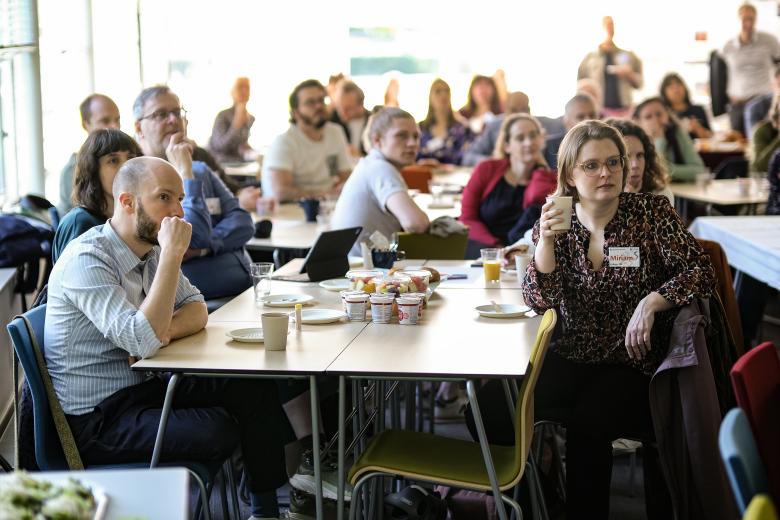
Sessions 5 – 11:45-13:15
- Helping mentees GROW: A coaching tool for mentoring sessions, by Rena Gatzounis
“I’m thinking of changing study programme”, “How can I work better with my teammates?”, “I’m torn between two master’s options”. These are common topics in mentoring sessions. As mentors, we can share our knowledge and experience, but ultimately, the answers lie within our mentees. How can we help them find these answers?
In this workshop, I will present the GROW model as a framework for mentoring sessions. Widely used in coaching, the GROW model is a powerful tool to structure conversations in a way that generates solutions, highlights resources, inspires action, and drives change.
After a presentation and demonstration, participants will practise applying the model in small groups. We will conclude with a plenary discussion to explore questions and share experiences.
- In the zone: fostering intrinsic motivation in yourself and your students, by Annechien Deelman
Do you remember when you were ‘in the zone’, losing track of time trying to figure something out? In this session, we want to take ourselves back to such a situation where you did the work, almost without realising it, because you wanted to understand exactly how something worked or find proof for your view of things and convince someone of how right you were all along, or …
We will help you remember such a situation and jointly analyse what the situation was exactly like when that happened. We will also invite colleagues who know more about intrinsic motivation to learn. Based on our own experiences and the input of our colleagues, we will jointly try to identify what to do and what not to do to awaken intrinsic motivation or keep it alive in our students (and ourselves).
- Using design thinking in the classroom, by Susan Schreibman and Costas Papadopoulos
Design thinking offers an alternative way to integrate PBL into the classroom, where students collaborate in small groups to solve problems. By working with both their hands and minds – building, making, and experimenting – they engage deeply in the learning process. Design thinking can shape an entire curriculum or be introduced at key moments for brainstorming, problem-solving, and prototyping.
Design thinking tools and methods can also be used for icebreakers, teamwork, and understanding communication styles. While these activities may seem playful, they can be powerful motivators that help students gain insight into their strengths, weaknesses, team roles, and unique skills.
This workshop will explore design thinking in the classroom through case studies and active exercises.
- Outdoor Adventure Coaching for reflection and team-building, by Iris Burks and Arie van der Lugt
Do you remember playing outside? Throwing a ball, climbing a tree or running around with a blindfold. That was fun, right? But it was also very educational! Discover how you can guide your students to combine group coaching and deep reflection while enjoying playful games outside. It is a method that engages students in a series of safe yet challenging outdoor activities within peer groups.
After each activity, the group reflects on their experiences, which is a powerful tool for team-building and personal self-reflection. In the following activity, each participant is invited to look for their own opportunities for personal growth. This offers a practice ground for new behaviours. The playful setting, nature and the peer group all take up a co-coaching role, making this a true team effort.
Outdoor Adventure Coaching is an effective form of facilitated peer supervision for first-year learning communities, as it challenges students to actively confront personal obstacles in a safe environment. This session will not include a long theoretical introduction. We immediately step out into the proverbial ‘mud’ and experience what Outdoor Adventure Coaching can do. Will you come out and play?
Note: Please consider your clothing. The activity will take place outside and will include mild movement.
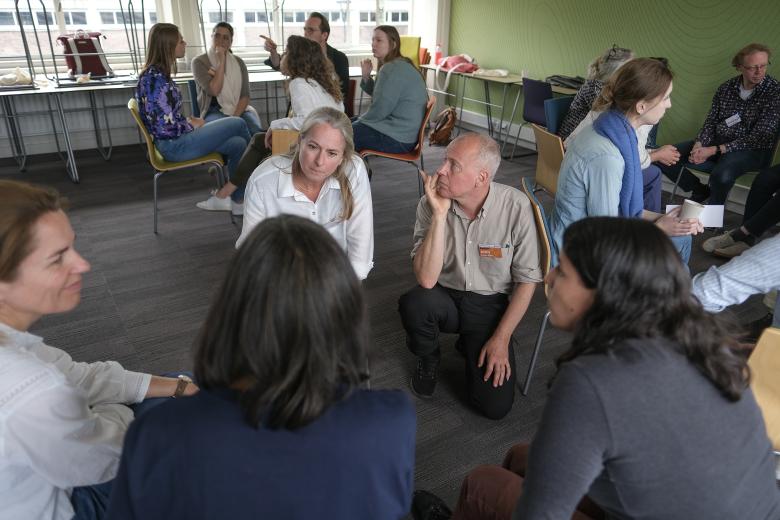
Wrap-up lunch – 13:15-14:15
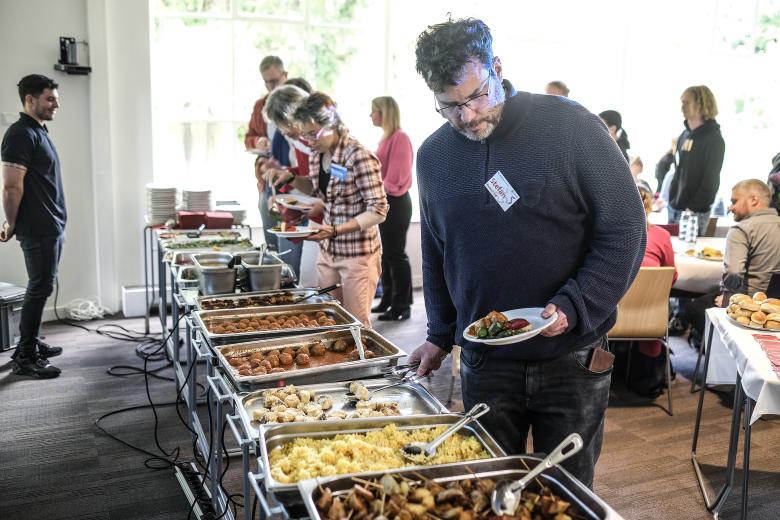
For anyone passionate about education, the UM Education Days are about more than just sharing knowledge. They are about building a community that values learning, creativity, and collaboration.
Visit our UM Education Days 2024 highlights.

